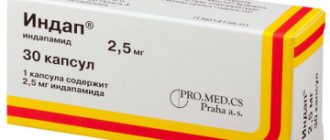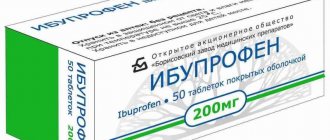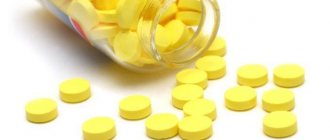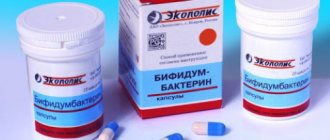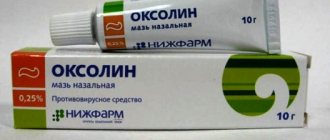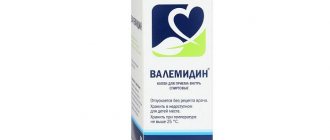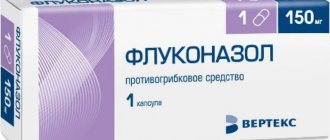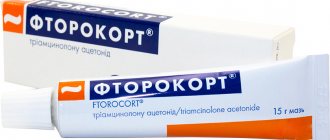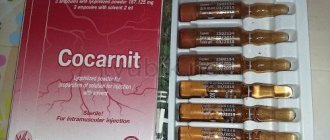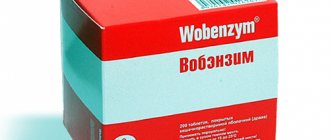The unique foliage plant of the Mesozoic era, ginkgo biloba, is famous not only for its longevity, but also for its healing properties. They were successfully used by the world famous company Now Food (USA) and released a drug in capsules called Now Ginkgo biloba extract. This dietary supplement is a modern and safe way to healthy supplement your diet with a natural source of bioflavonoids. The drug belongs to biologically active agents that strengthen human health, increase resistance to daily risks and stress on the nervous system, and improve brain activity.
The capsule contains three main components: standardized extract of Ginkgo biloba (flavonoid glycoside of at least 24%) - 120 mg, Centella asiatica - 150 mg, Eleutherococcus senticosus - 125 mg.
Composition and release form
There are several formats of preparations based on Ginkgo Biloba: tablets, tincture, capsules . Their composition differs depending on the manufacturer:
| Name Ginkgo Biloba, manufacturer | Active substance – extract of dry biloba Ginkgo | Auxiliary components | Release form, packaging |
| Evalar | Glycine | Capsules or tablets, 40 pcs. in a bottle | |
| Doppelhertz | 30 mg per tablet | B vitamins | Pills |
| Forte | Green tea, polyvinylpyrrolidone, pollen, calcium stearate, dried onion, stearic acid, lactose monohydrate | Capsules in blisters of 10 pcs., a pack with instructions contains 4 contour plates | |
| Ginkum | 0.04 g per capsule | Calcium stearate, microcrystalline cellulose | Brown hard capsules, yellow powder inside, in a package of 2 blisters of 15 pcs. |
Features of application
Taking into account the high saturation of plant extracts, you can understand how effective the drug from this plant is.
In addition to the biological range of active components, the drug also contains various micro- and macroelements.
Due to the fact that the drug contains flavoglycosides and proanthocyanidins, it has an antioxidant effect on the body, therefore it has proven itself in protecting cerebral vessels from the adverse effects of free radicals on them, and in successfully normalizing the condition of cerebral vascular walls.
The drug has many other, no less properties, the most common of which are:
- Vasodilators;
- Anti-ischemic;
- Diuretics;
- Decongestant;
- Calming;
- Antiplatelet.
Ginkgo Biloba is deservedly considered one of the remedies that can prevent an asthma attack.
Using the drug in old and senile age, a person will restore the deteriorating functioning of the speech apparatus, motor and auditory receptors. Vision will become much better, memory will be clearer, and circulatory disorders will be completely eliminated.
The drug has more than 10 medicinal properties.
He is capable of:
- Improve internal lumen in vessels, veins and capillaries.
- Restore the elasticity of vascular cells and reduce their softness, which helps protect the body from strokes and heart attacks. The use of the drug eliminates the possibility of developing hemorrhage in the eye.
- Reduce blood viscosity, thereby protecting it from blood clots. Helps stimulate blood circulation in the heart, brain and limbs.
- Reduce the permeability of vascular walls and reduce swelling.
- Stop the withering process.
- Reduce the amount of uric acids in the body.
- Maintain intellectual abilities.
- Normalize the conduction function of impulses of the central nervous system.
- Increase the energy and physical strength of the body.
- Regulate the correct process of carbon metabolism.
- Normalize the insulin production required by the body, protecting the cells of the stomach and pancreas.
Properties of Ginkgo Biloba
The Ginkgo tree is a gymnosperm relict plant whose leaves and seeds contain many biologically active substances: bioflavonoids, terpene trilactones, organic acids, alkaloids, flavonoids, proanthocyanidins, macroelements, vitamins . The components included in the plant inhibit the activity of the phosphodiesterase enzyme, which leads to the accumulation of cyclic guanosine monophosphate in smooth muscle cells and a decrease in the concentration of calcium ions in the cytoplasm.
This leads to relaxation of the muscular vascular walls, a decrease in their tone, increased production of endothelial relaxing factor and improved blood flow, including renal and cerebral. The components included in the plant affect the circulatory system, change the rheological properties of blood, prevent thrombosis from developing, and reduce the adhesiveness of red blood cells and platelets. The drugs reduce the release of mediators that tone the arterial vessels.
The plant has a strong antioxidant effect due to the content of flavonoid glycosides. They have P-vitamin activity, bind to metal ions (iron, copper, manganese), form complexes and reduce the level of free radicals. Glycosides also prevent the destruction of ascorbic acid and adrenaline. Terpenoids, selenium, phosphorus, copper and potassium enhance the antioxidant properties of medications.
The active substance in the leaves is bilobalide, which has anti-ischemic properties . This allows the drug to be used in cardiology for the treatment of heart failure. The substance shows its excellent effect under hypoxic conditions, increases the expression of mitochondria and nerves, the level of mRNA and supports the activity of cytochrome C oxidase.
The plant is used in neurology because its components have neuroprotective properties, reduce the risk of oxidative or spontaneous apoptosis, deactivate nmda receptors and their effect on calcium-dependent programmed cell death mechanisms. Medicines normalize carbohydrate metabolism, affect the metabolism of dopamine, norepinephrine, serotonin, and exhibit nootropic and antidepressant effects.
Another area of application of the leaf extract is nephrology, because the constituent components protect kidney tissue. Nephroprotective activity is manifested in reducing lipid peroxidation and protecting cells from destruction. The use of the drugs reduces proteinuria and the severity of tubular disorders. The plant has a diuretic effect, improves renal blood flow and increases the glomerular filtration rate.
Pharmacological properties
Pharmacodynamics
The dietary supplement actively affects the blood vessels of the brain, helping to improve the rheological properties of the blood and preventing the formation of clots and blood clots in the arteries and veins, and also exhibits antioxidant activity. Terpene compounds and flavonol glycosides contained in Ginkgo biloba extract reduce capillary permeability and normalize their tone; by activating cerebral circulation, they stimulate brain activity, increasing its supply of nutrients and oxygen.
Thanks to the action of dietary supplements, mental performance and concentration of attention increase, memory improves, and meteosensitivity decreases.
Indications for use
Based on the properties of the plant, preparations based on the leaves have a wide range of applications. The instructions highlight the indications:
- deficiency of polyphenols and flavonoids;
- unjustified feeling of fear;
- cerebrovascular disorders;
- encephalopathy;
- dementia, Alzheimer's disease;
- frequent dizziness;
- atherosclerosis of cerebral vessels, myocardium;
- arteriopathy of the lower extremities;
- diabetic retinopathy;
- disturbance of the rhythm of sleep and wakefulness;
- Raynaud's syndrome;
- decreased memory and learning;
- hypochromic anemia;
- age-related macular degeneration;
- tinnitus, hypoacusia;
- in geriatrics: neurosensory, homeostatic disorders, nephrology lesions;
- disturbances in mental activity.
Indications for use and risk factors
Due to the rich composition of more than 100 active components, dietary supplements and plant-based products are widely used in both traditional and folk medicine. Ginkgo biloba has a wide range of indications for use; pathologies may not be related to each other. The list of indications includes:
- disorders of cerebral circulation and motor skills due to stroke or head injury;
- problems with peripheral blood supply (heaviness in the legs, cooling and numbness of the arms and legs);
- nervous, depressive states, panic attacks;
- decreased performance, lethargy, memory impairment, drowsiness;
- varicose veins and hemorrhoids;
- Alzheimer's disease, dementia (senile dementia);
- dizziness, tinnitus, headache and other symptoms of neurosensory disorders;
- inflammatory processes, viral diseases;
- diabetes;
- swelling;
- atherosclerosis;
- ischemia of the heart muscle, high blood pressure;
- cataracts, decreased visual acuity;
- hearing impairment.
Despite its wide spectrum of action, ginkgo biloba extract should not be taken without prior medical consultation. The fact is that such drugs also have contraindications:
- pregnancy and lactation;
- preoperative period;
- taking medications to reduce blood viscosity or low blood clotting rate;
- individual intolerance to the components;
- danger of cerebral hemorrhage;
- myocardial infarction condition;
- acute form of peptic ulcer of the stomach and duodenum.
Also, ginkgo is not prescribed to children under 12 years of age. People who are prone to bleeding should be careful with the dosage. During pregnancy, ginkgo can cause fetal loss.
Directions for use and dosage
Instructions for use of Ginkgo Biloba differ depending on the form of the drug and the manufacturer. More often, medications based on plant extracts are taken orally. Before taking, you should consult your doctor to make sure you are not allergic to any of the ingredients or cross-sensitivity to other similar substances .
Ginkgo Biloba Forte
Capsules or tablets of Ginkgo Biloba Forte produced by Evalar are taken by patients over the age of 14 years, 1 piece twice a day with meals. Take the dose with a glass of water, do not chew or crush it. The duration of use of the medicine, according to the instructions, is one month. If necessary, the course can be repeated 2-3 times a year.
Articles on the topic
- Medicine for cerebral vessels - review of medicines with descriptions
- Laveron - instructions for use, dosage, active ingredient, contraindications and reviews
- Drugs that increase libido in women - medications and folk remedies, dietary supplements with prices, reviews
Ginkgo Biloba Evalar
Regular ginkgo biloba tablets are taken orally, swallowed whole, and washed down with a sufficient amount of liquid. It is advisable to take the drug with food to improve the absorption of the active ingredients and their effectiveness. The standard dosage, according to the instructions, is 1-2 pcs. 1-2 times a day. The duration of the course is three months, after 2-3 months it can be repeated.
Tablets from Doppelhertz
According to the instructions, Ginkgo Biloba tablets produced by Doppelgerz are taken by adult patients once a day, one piece with meals. The course of treatment with a dietary supplement lasts two months. If necessary, you can repeat the dose after a month's break. The tablets contain 0.14 kcal or 0.6 kJ; the content of bread units is not stated in the composition.
Ginkgo Biloba Tincture
Ginkgo Biloba tincture is sold in pharmacies and on the Internet, but you can prepare it yourself. The leaves of the plant are poured with vodka or alcohol in a ratio of 1:10 and infused in a dark place for two weeks. The tincture is shaken periodically. The liquid is filtered before use. The standard dosage is 10-15 drops per 100 ml of water twice a day before meals. The course lasts for a month and can be repeated three times a year.
In addition to the alcohol tincture, there is also a water one. A tablespoon of crushed plant material is poured into 200 ml of boiling water and boiled in a water bath for 15 minutes. After this, the mixture is left to cool and infuse for half an hour. You need to take the resulting solution one third of a glass three times a day before meals. The course lasts a month, after two weeks the treatment can be repeated.
Ginkum
According to the instructions, Ginkoum capsules are intended for oral administration . They are taken regardless of food, not crushed, swallowed with clean water. For the treatment of cerebral circulation disorders, taking 1-2 capsules three times a day for a course of at least eight weeks is indicated. To correct peripheral blood circulation, take 1 capsule three times a day or 2 tablets twice a day for a course of at least 6 weeks.
How to prepare medicine
There are 2 types of tincture: alcohol and water. The first gives a more pronounced therapeutic effect, but has a larger list of contraindications. Let's look at how to prepare both ginkgo biloba tinctures.
With vodka or alcohol
To prepare ginkgo biloba tincture you will need the following ingredients:
- dry leaves of ginkgo biloba - 25 g;
- 40% alcohol - 250 ml.
You can use leaves prepared yourself or purchased at a pharmacy.
The ingredients must be infused for 2 weeks in a cool, dark place. The infused medicine is ready for use, but must first be strained.
special instructions
In Russia you can grow a tree yourself. Such a plant will be unique - it has a special leaf pattern, similar to ancient ferns. The tree is unpretentious, according to the instructions, it overwinters at a temperature of 0-6 degrees; you can place it in the refrigerator for the winter and limit the water regime. Like any plant, Ginkgo biloba has its pros and cons (adverse reactions such as indigestion, allergies, headaches). The advantages include:
- improvement of systemic blood flow at the main and microcirculatory levels;
- antioxidant effect;
- change in the rheological qualities of blood towards antiplatelet properties;
- anti-ischemic effect;
- neuro-, nephroprotective effects.
Description and composition
Hard gelatin capsules of sizes No. 3 and No. 0 are yellow-brown in color and contain inside a compacted yellow to brown powder with white and dark brown inclusions.
The active component of the drug is a dry extract of Ginkgo biloba leaves. 1 capsule may contain 40 mg (No. 3) and 80 mg (No. 0) of the active substance.
Auxiliary elements:
- milk sugar monohydrate;
- talc;
- croscarmellose sodium;
- magnesium stearate;
- colloidal silicon dioxide;
- gelatin;
- titanium dioxide;
- yellow iron oxide.
Ginkgo biloba leaves contain:
- Biflavonoids;
- Acids: shikimic acid, linolenic acid, quinic acid, hydrogincal acid;
- Flavonoids: kaempferol, ginkgetin, bilobetin, quercetin;
- Amino acids;
- Polysaccharides;
- Minerals;
- Vitamins.
The instructions for ginkgo biloba indicate that the drug is a medicine of natural origin, as it is a plant. With regular and long-term use, the medication has a positive effect on the condition of the walls of the vascular system in the head, improves the rheological properties of the blood and increases cognitive abilities.
The drug exhibits an antioxidant effect and improves cerebral circulation, which helps improve metabolic processes and also improve the quality of life of an elderly person. Timely intake of ginkgo biloba-based supplements in adults will help in the future to prevent age-related memory loss and deterioration in the elasticity of cerebral blood vessels.
The effective therapeutic effect is due to the presence of special substances in the leaves of the tree - ginkgolides, which exhibit vasodilating properties and improve the plasticity of the walls of the vascular bed. The plant itself belongs to the ancient species of ginkgophytes. The rest of the tree species became extinct. Due to the expansion of the vascular wall, there is improved nutrition of brain cells with useful substances.
The instructions for use of ginkgo biloba indicate that with early use of the medicine, you can reduce the risk of cardiovascular pathologies by reducing the amount of bad cholesterol in the body. Elevated levels of bad cholesterol can provoke atherosclerosis, which is characterized by blockage of the vascular bed and walls with cholesterol plaques. Proanthocyanidins and flavoglycosides in the composition have an antioxidant effect, which reduces the negative impact of free radicals on the body.
https://www.youtube.com/watch?v=cYAJpyhkS3U
The medication exhibits the following pharmacological actions:
- vasodilators;
- disaggregant;
- anti-ischemic;
- neuroprotective;
- antispasmodic;
- diuretic;
- sedatives.
During pregnancy
According to the instructions, the use of drugs during pregnancy is not prohibited, but treatment is carried out when the benefit to the mother exceeds the potential risk to the child. It is not known whether the active substance crosses the placenta and breast milk, so therapy is carried out with caution both during pregnancy and breastfeeding .
8. Natrol, Ginkgo Biloba - suitable not only for the brain, but also for damage to the veins of the extremities
Dietary supplement in capsules, dosage 120 mg, enriched with flavone glycosides. They are used in medicine to treat diseases accompanied by deformation of the venous walls.
Therefore, the drug has a complex effect: it strengthens blood vessels and reduces blood viscosity to normalize blood circulation. The package contains 60 capsules.
Improved overall tone and well-being are noted by all buyers of the supplement on iHerb. There are no negative reviews even from older people, who more often experience side effects of similar drugs.
Among the common results of taking the drug: improvement of memory and cognitive abilities, normalization of sleep.
Contraindications
Ginkgo Biloba preparations have relative and absolute contraindications for use. The latter include:
- hypersensitivity to the components of the composition;
- acute cerebrovascular accidents;
- age under 12 years;
- exacerbation of a stomach or duodenal ulcer;
- decreased blood clotting;
- acute myocardial infarction;
- arterial hypotension.
Relative contraindications are conditions that require the use of medications with caution. The instructions highlight the following:
- pregnancy, breastfeeding;
- epilepsy (increases the risk of seizures);
- erosive gastritis (complicates pathologies);
- postoperative regimen or planned interventions (increases the likelihood of bleeding);
- risk factors for the development of intracranial hemorrhage.
Benefits and harms
Possessing antioxidant activity, this unique product has found its use not only in modern medicine, but also in cosmetology. Among the beneficial properties of Ginkgo biloba, doctors highlight the following points:
- cerebral circulation is normalized;
- blood vessels dilate;
- the elasticity of vascular walls increases;
- blood sugar levels stabilize;
- increased swelling disappears;
- metabolic processes are normalized;
- blood pressure stabilizes.
It is not recommended to use dietary supplements during pregnancy; such medicine can also be harmful during lactation. Alternative treatment for epilepsy is prescribed with caution; in addition, before starting the course, it is important not to forget about the body’s increased sensitivity to the active components of this unique medicinal plant. Otherwise, Ginkgo biloba preparations provide enormous health benefits to patients at any age.
- DIY acorn crafts for children
- Feijoa - beneficial properties and contraindications. Composition and medicinal properties of feijoa jam or juice
- Treatment of acute gastritis
Analogs
Drugs are being replaced by medicines that contain the same extract of a beneficial plant, but in a different form. Analogues of the product are:
- Tanakan - 40 mg extract in tablet or tincture form.
- Memoplant - tablet form of Gingko extract
- Ginkgo Gotu Kola is a type of plant belonging to the parsley family that has healing properties and is used to restore skin and muscles after injuries.
Ginkgo biloba may relieve symptoms of asthma and COPD
Scientists have repeatedly evaluated ginkgo's ability to reduce anxiety, stress and other symptoms associated with Alzheimer's disease and the cognitive decline that comes with aging.
Overall, research results are inconsistent in this area.
Some studies have found a marked slowing of the rate of cognitive decline in people with dementia with ginkgo biloba, but other studies have not confirmed this result.
A review of 21 studies found that when used in combination with conventional medicine, ginkgo extract may increase the functionality of patients with moderate Alzheimer's disease (12).
Another review assessed four studies and found a significant reduction in the range of symptoms associated with dementia when ginkgo was used for 22 to 24 weeks (13).
The positive results may be due to the role that ginkgo may play in improving blood circulation in the brain, especially in vascular types of dementia.
Overall, it is too early to make definitive statements regarding the effectiveness or ineffectiveness of ginkgo biloba in the treatment of dementia, but recent research is beginning to clarify the effectiveness of this medicine.
Some studies suggest that symptoms of asthma and other inflammatory respiratory diseases such as chronic obstructive pulmonary disease (COPD) may be relieved by ginkgo.
This is due to the anti-inflammatory compounds in ginkgo biloba, which may help reduce airway inflammation and increase lung capacity (23).
One study evaluated the use of ginkgo extract along with corticosteroid therapy to treat asthma symptoms in 75 people. Levels of inflammatory compounds in the saliva of the group of people who received ginkgo were significantly lower than in the group who received only traditional medications (24).
Another study of 100 people evaluated a mixture of Chinese herbs, including ginkgo, in treating symptoms of COPD. Those who used this herbal mixture reported a significant reduction in cough and bronchitis compared to the control group during a three-month follow-up (25).
It cannot be determined at this time whether this improvement can be attributed to ginkgo alone or is the result of a synergistic effect of the other herbs used in this medicinal formula.
While these results are encouraging, more research is needed on this specific use of ginkgo.
The benefits of ginkgo biloba may be associated with a reduction in PMS symptoms. Preliminary research suggests that ginkgo may help relieve both the physical and psychological symptoms of premenstrual syndrome (PMS).
One study of 85 college women found that taking ginkgo biloba reduced PMS symptoms by 23% (26).
Interestingly, the placebo group in this study also experienced a slight reduction in PMS symptoms, although it was much lower at 8.8%. This demonstrated that even a placebo could provide some help and that the results may not be solely due to ginkgo.
Further research is needed to better understand the cause-and-effect relationship between ginkgo supplementation and PMS symptoms.
Price of Ginkgo Biloba
You can buy preparations based on Ginkgo Biloba through pharmacies or the Internet . The cost will depend on the release form, packaging volume and network markup. Approximate Moscow prices:
| Type of medicine, manufacturer | Internet price, rubles | Pharmacy cost, rubles |
| Evalar tablets 40 pcs. | 182 | 190 |
| Vis capsules 40 mg 40 pcs. | 137 | 160 |
| Evalar tablets 120 mg 60 pcs. | 586 | 620 |
| Capsules 40 mg 30 pcs. | 153 | 168 |
| Capsules 80 mg 30 pcs. | 163 | 170 |
TOP 5 ready-made tinctures based on ginkgo biloba
iHerb has compiled a rating of the best tinctures based on price and customer reviews.
The cost of 1 serving is 1.27 rubles.
General information:
- package volume - 100 ml;
- dosage - 15 drops 2 times a day.
This is an alcohol tincture, supplied in a 100 ml glass jar. The product contains tree leaves, water and ethyl alcohol. Take the medicine 2 times a day for a month, then take a week break. The cost varies from 254 to 300 rubles.
Pros:
- efficiency;
- effectiveness;
- low cost.
The cost of 1 serving is 1.9 rubles.
General information:
- package volume - 100 ml;
- dosage - 10-15 drops 2 times a day.
The medicine comes in a 100 ml glass jar. It contains tree leaves, water and ethyl alcohol. Take the drug 2 times a day for a month, then take a week break. Up to 3 courses of treatment per year are allowed. The cost varies from 380 to 450 rubles.
Pros:
- low consumption;
- maintaining the therapeutic effect for a long time;
- affordable price.
The cost of 1 serving is 2.25 rubles.
General information:
- package volume - 100 ml;
- dosage - 10-15 drops 2-3 times a day.
The medicine contains tree leaves, ethyl alcohol and purified water. The medicine helps to cope with circulatory disorders. Shelf life - 3 years. The cost starts from 450 rubles per 100 ml bottle.
Pros:
- improvement of brain activity;
- relief from headaches and migraines;
- low price.
Minuses:
- specific aroma and taste
Herb Pharm, Ginkgo, 1 fl oz (29.6 ml)
★★★★★
from 956 ₽
The cost of 1 serving is 20.89 rubles.
General information:
- package volume - 29.6 ml;
- dosage - 0.7 ml (30-40 drops) up to 2-5 times a day.
Contains ginkgo biloba leaves, cane alcohol, distilled water and glycerin, and is gluten-free.
Pros:
- high quality;
- positive effect after 2–3 weeks of use.
Minuses:
- high price;
- specific taste.
Nature's Answer, Alcohol-Free Ginkgo, 500 mg, 1 fl oz (30 ml)
★★★★☆
from 669 ₽
The cost of 1 serving is 40.9 rubles.
General information:
- package volume - 30 ml;
- dosage - 2 ml (55 drops) 2-3 times a day.
This is an aqueous extract obtained by cold biochelate release. The preparation contains biloba tree leaves, purified water and vegetable glycerin.
Pros:
- high quality raw materials;
- noticeable effect in a short period of time.
Minuses:
- high price;
- high consumption.
7. California Gold Nutrition, Gingko Biloba Leaf Extract – safe for the stomach lining
Capsules with a concentration of 120 mg are designed for vegetarians. The shell of plant gelatin protects the gastric mucosa, so the dietary supplement can be taken even against the background of pathologies of the digestive system, which force one to abandon the medicinal plant in the form of tea or powder. The package contains 180 capsules.
Gingko biloba tablets produce a general strengthening effect, but it is most effective in relation to the vascular system.
With regular use of the product, the dynamics of getting rid of varicose veins and functional disorders of vascular outflow improve.
According to reviews, the drug from iHerb works much faster and better than analogues from the pharmacy. Some customers experienced a minor side effect: slight dizziness in the first days after starting the course.
The sensation passed on its own and was caused by increased blood circulation in the brain and saturation of tissues with oxygen.
6. Solaray, Ginkgo biloba leaf extract – result visible in tests
The supplement in the optimal dosage of 120 mg has a standard list of indications: varicose veins, impaired intracranial circulation, problems with cognitive functions of the brain, memory, attention.
The package contains 60 tablets.
Despite the modest description, the dietary supplement has extremely positive reviews: even doctors take it, recommending the product to patients. Side effects are not mentioned even once among the reviews on iHerb.
People advise buying a dietary supplement and comparing the effect with a pharmaceutical drug, assuring that this product will surpass it several times. In laboratory tests, after completing the course, the prothrombin index (blood viscosity) decreases.

